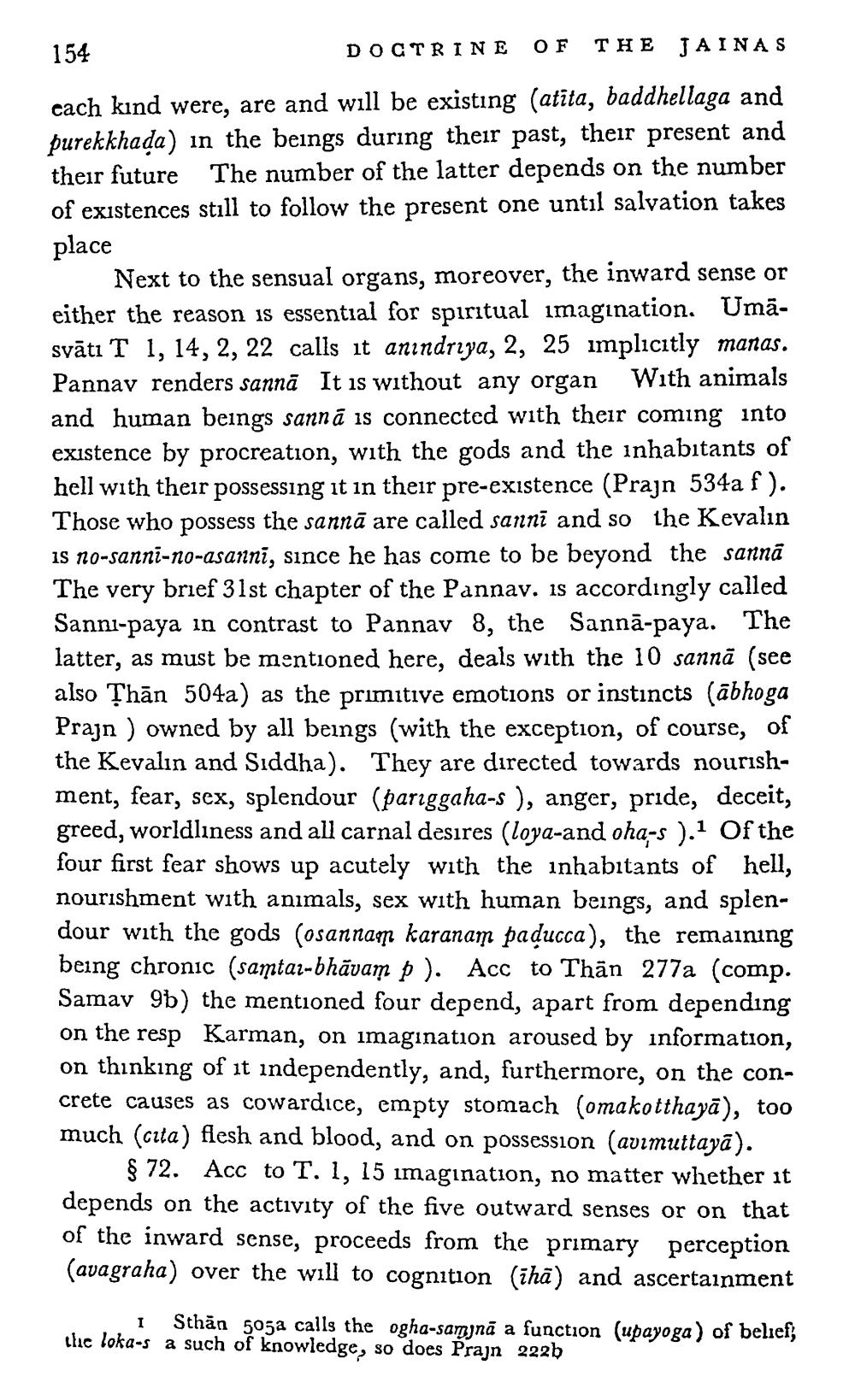________________
154
DOCTRINE OF THE JAINAS cach kind were, are and will be existing (atīta, baddhellaga and purekkhada) in the beings during their past, their present and their future The number of the latter depends on the number of existences still to follow the present one until salvation takes place
Next to the sensual organs, moreover, the inward sense or either the reason is essential for spiritual imagination. Umāsyāti T 1, 14, 2, 22 calls it anındriya, 2, 25 implicitly manas. Pannav renders sannā It is without any organ With animals and human beings sannā is connected with their coming into existence by procreation, with the gods and the inhabitants of hell with their possessing it in their pre-existence (Prajn 534a f). Those who possess the sannā are called sanni and so the Kevalın is no-sanni-no-asanni, since he has come to be beyond the sannā The very brief 31st chapter of the Pannav. is accordingly called Sanni-paya in contrast to Pannav 8, the Sannā-paya. The latter, as must be mentioned here, deals with the 10 sannā (see also Thān 504a) as the primitive emotions or instincts (ābhoga Prajn ) owned by all beings (with the exception, of course, of the Kevalın and Siddha). They are directed towards nourishment, fear, sex, splendour (pariggaha-s ), anger, pride, deceit, greed, worldliness and all carnal desires (loya-and oha-s ).1 Of the four first fear shows up acutely with the inhabitants of hell, nourishment with animals, sex with human beings, and splendour with the gods (osannam karanam paducca), the remaining being chronic (samtaz-bhāvam p ). Acc to Thân 277a (comp. Samav 9b) the mentioned four depend, apart from depending on the resp Karman, on imagination aroused by information, on thinking of it independently, and, furthermore, on the concrete causes as cowardice, empty stomach (omakotthayā), too much (cita) flesh and blood, and on possession (avimuttaya).
$ 72. Acc to T. 1, 15 imagination, no matter whether it depends on the activity of the five outward senses or on that of the inward sense, proceeds from the primary perception (avagraha) over the will to cognition (īhā) and ascertainment
i Sthan 505a calls the ogha-saryjnă a function (upayoga) of belief; the loka-s a such of knowledge, so does Prajn 222b




